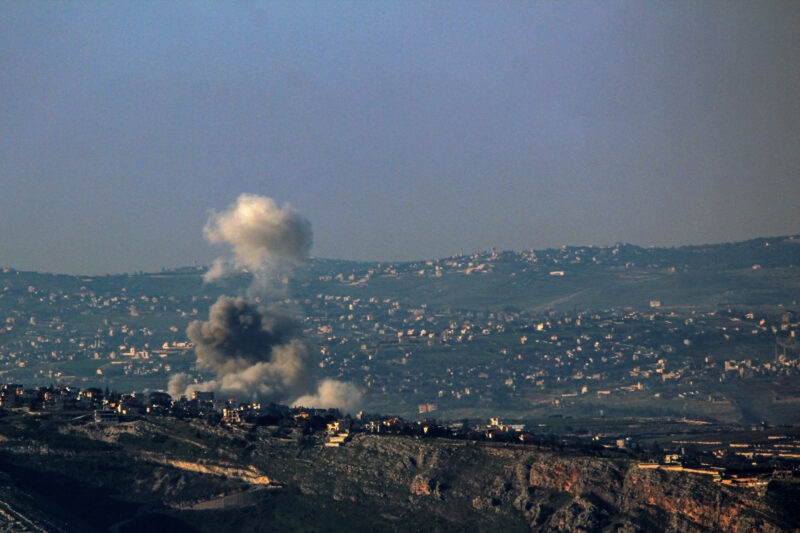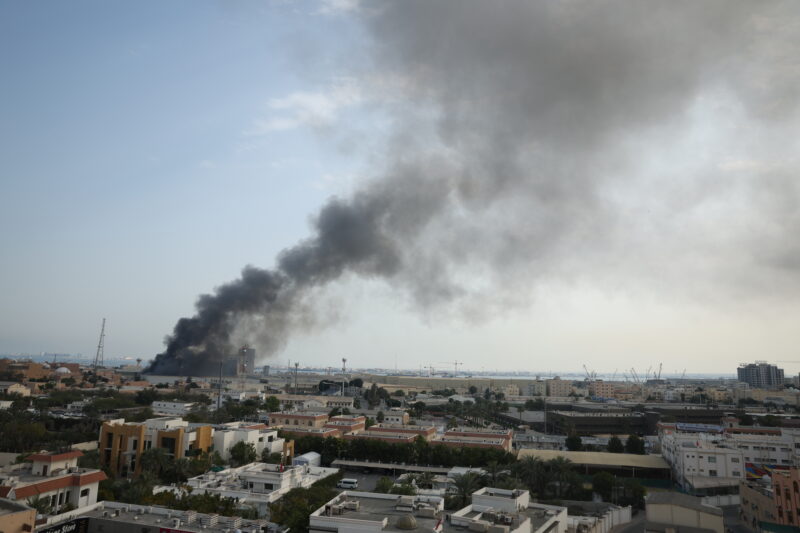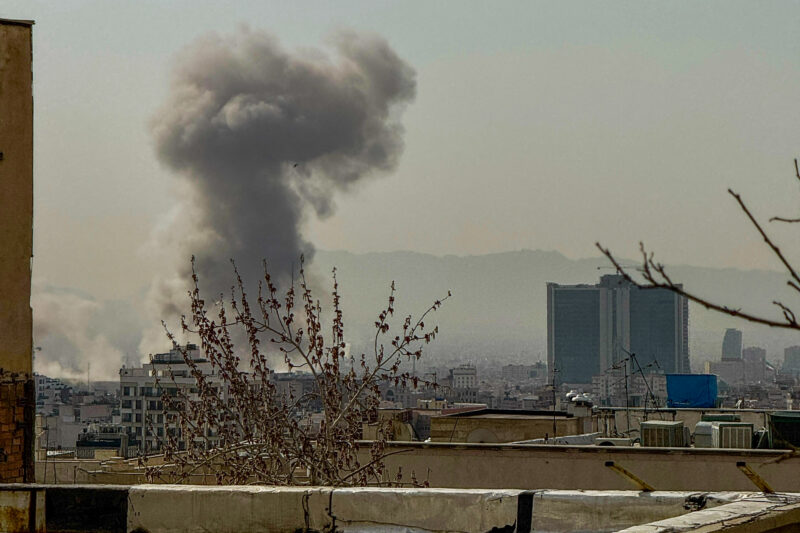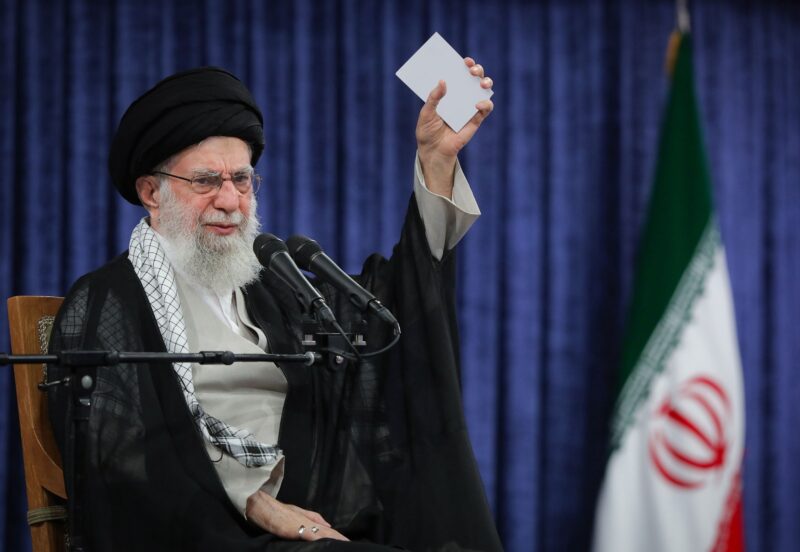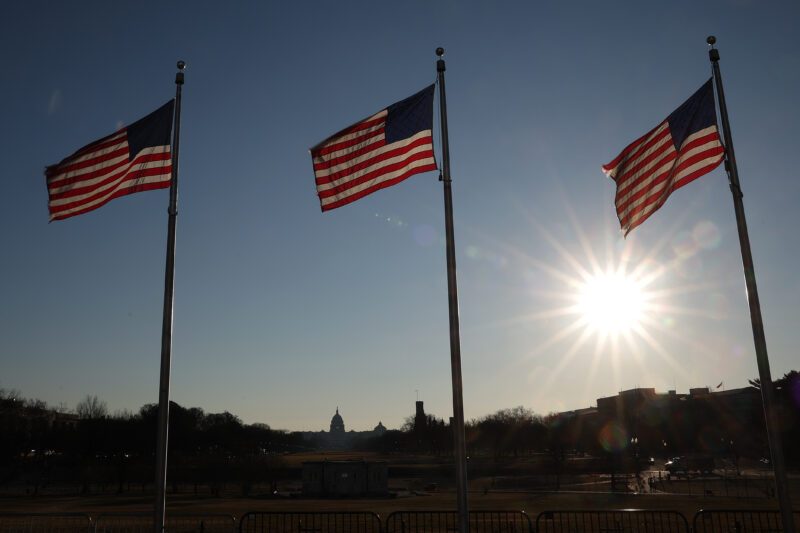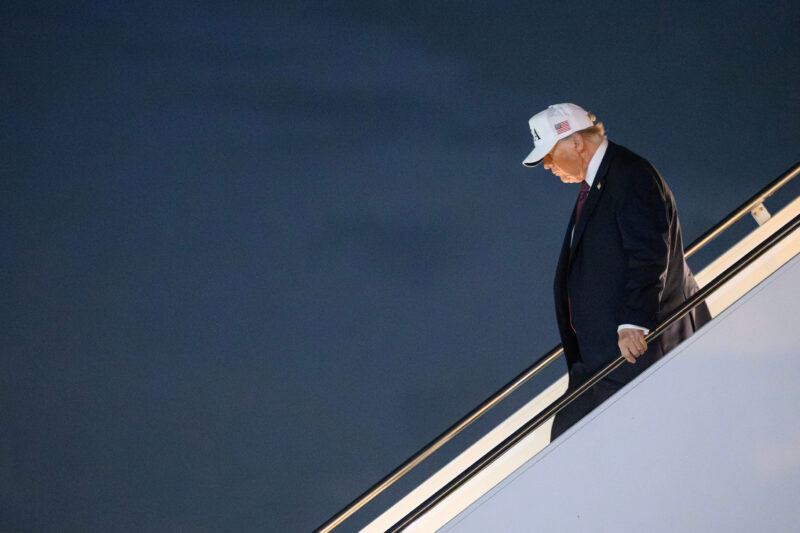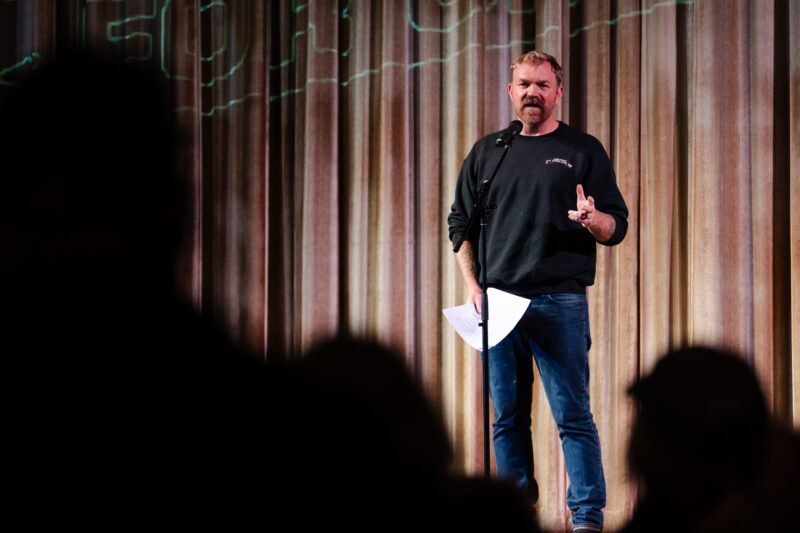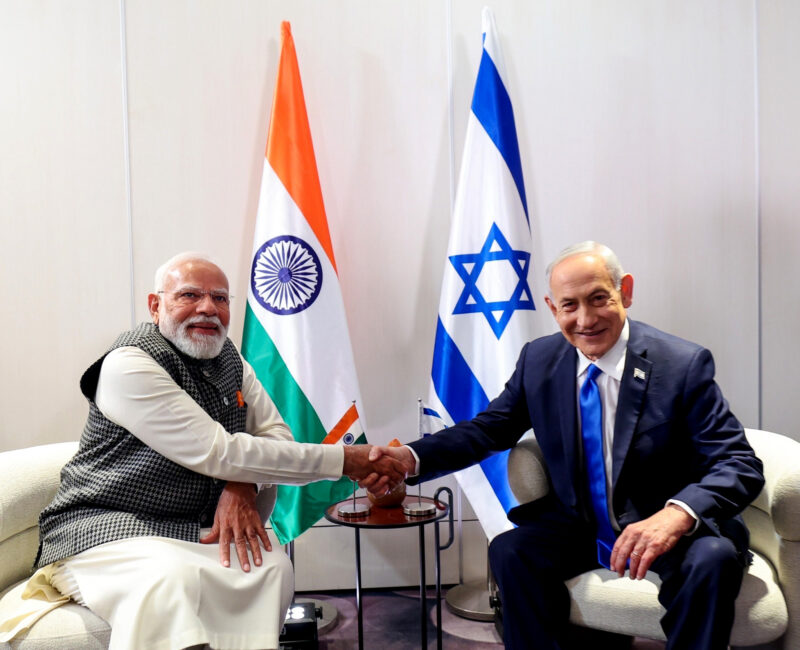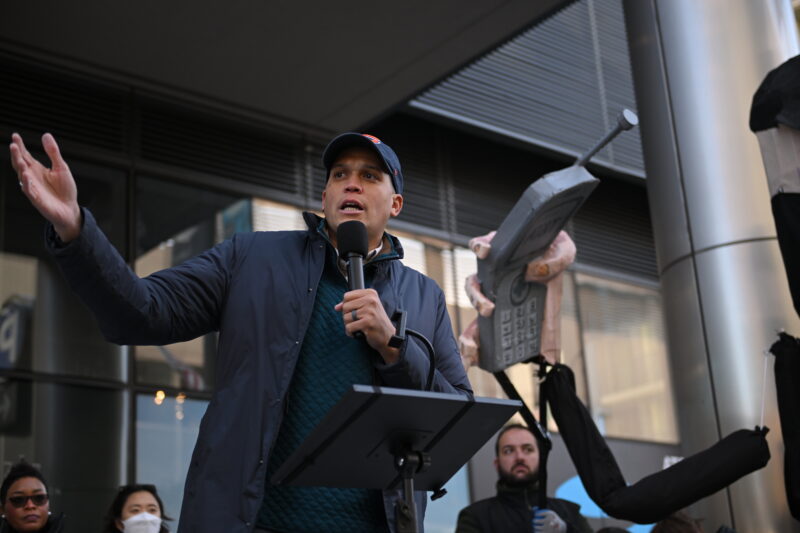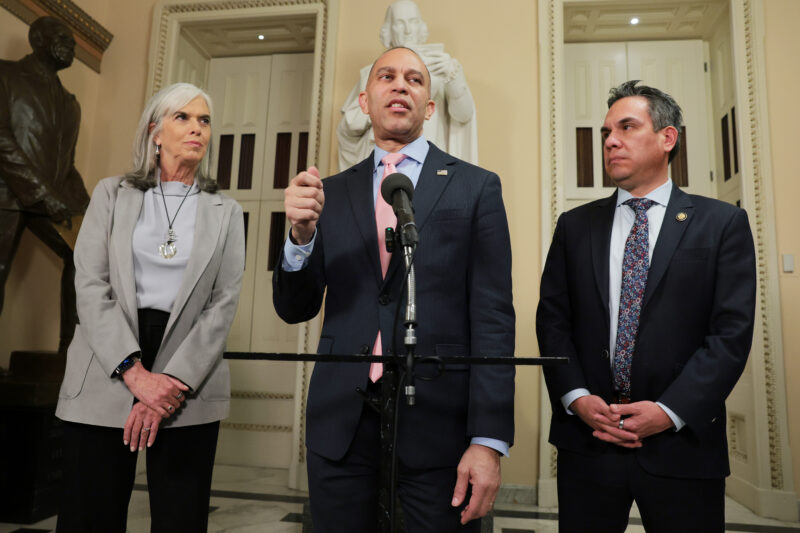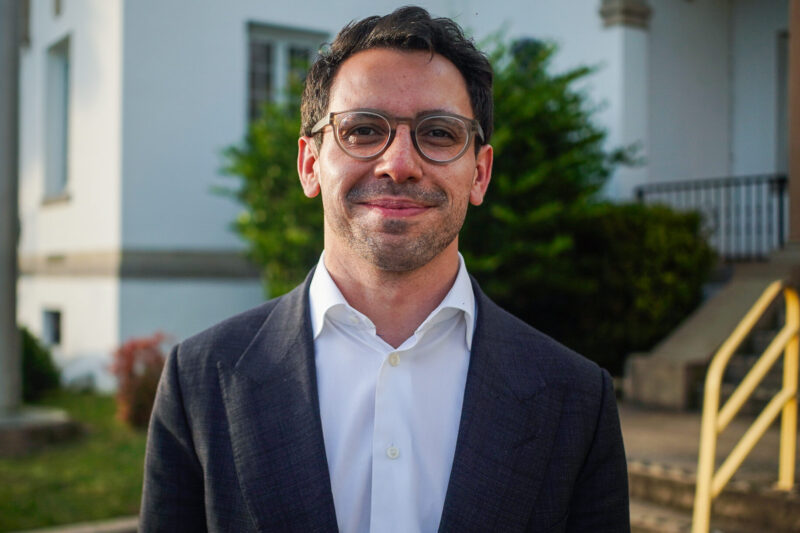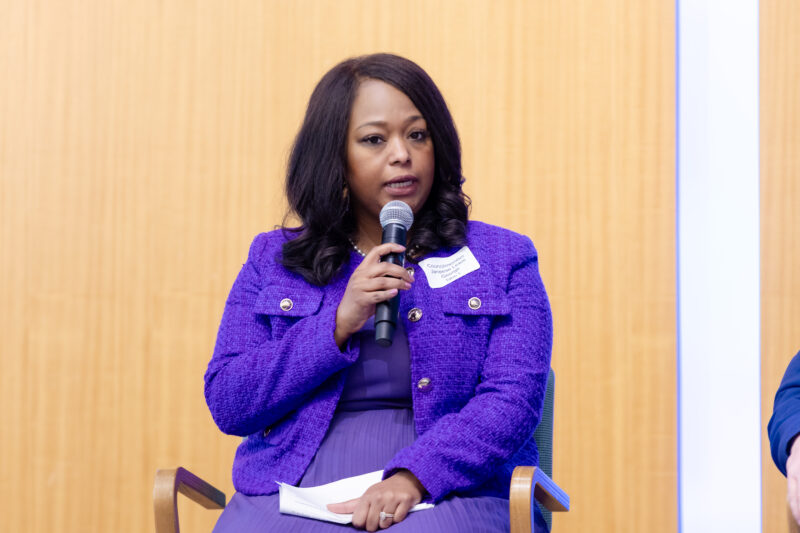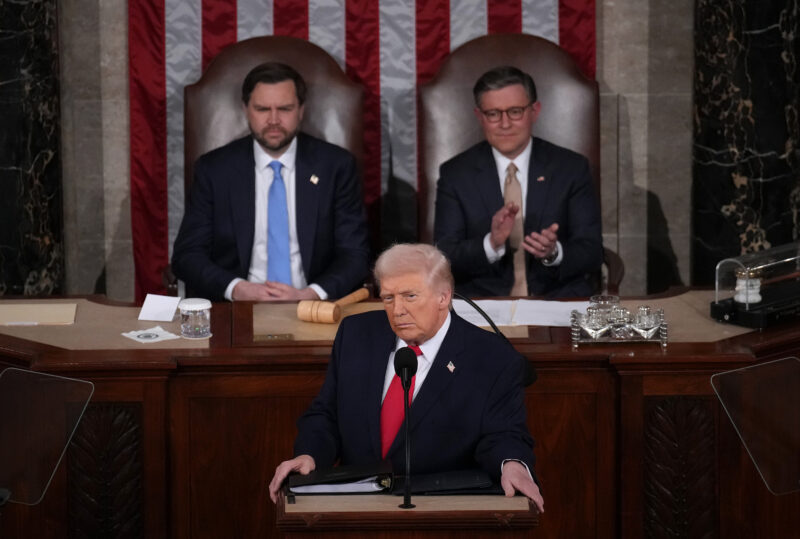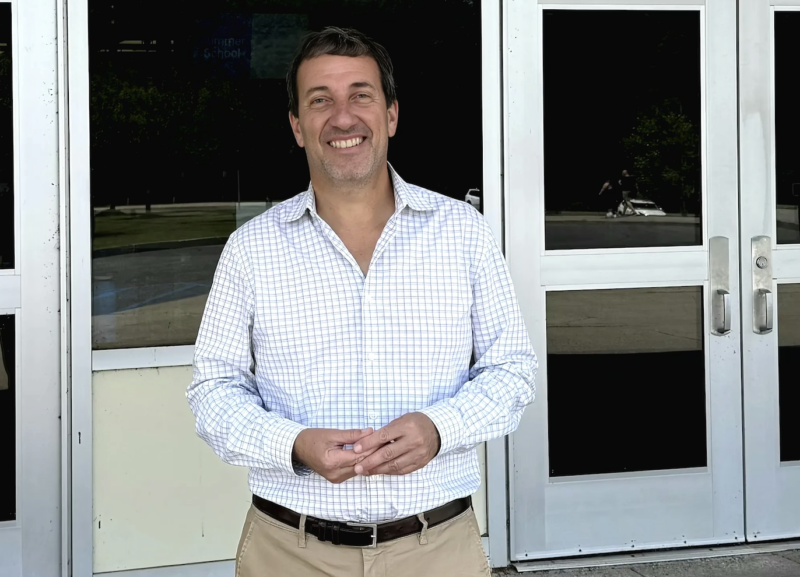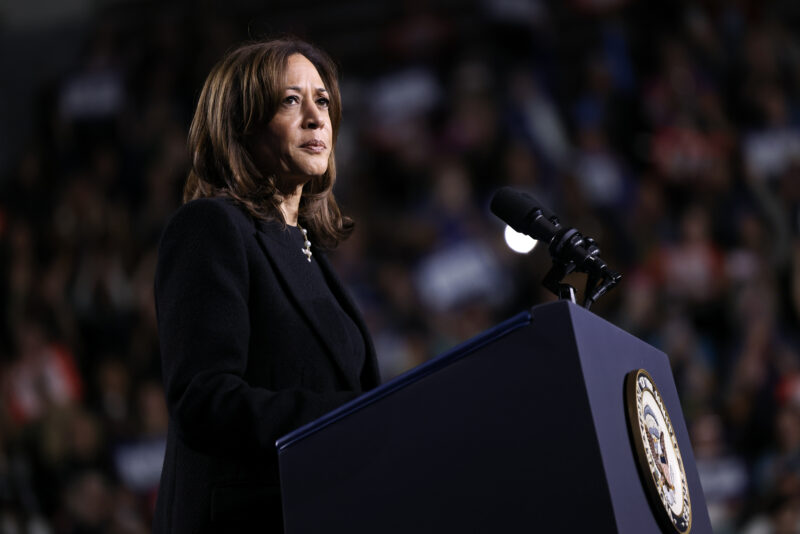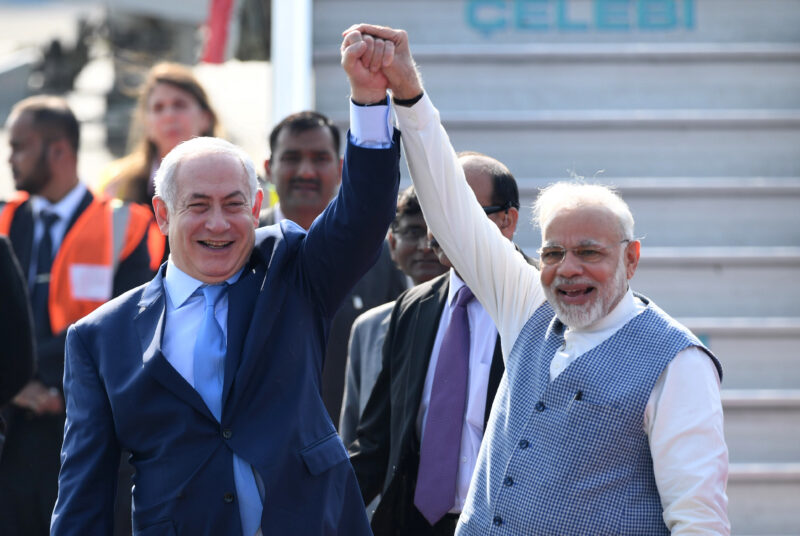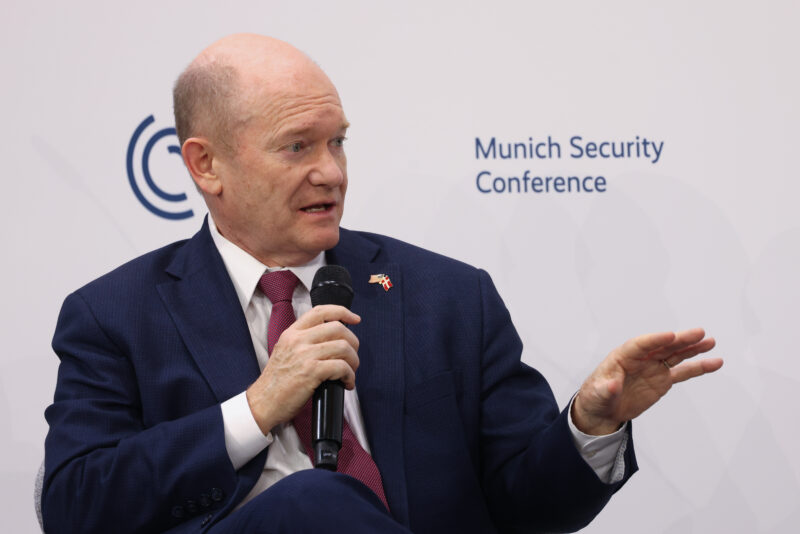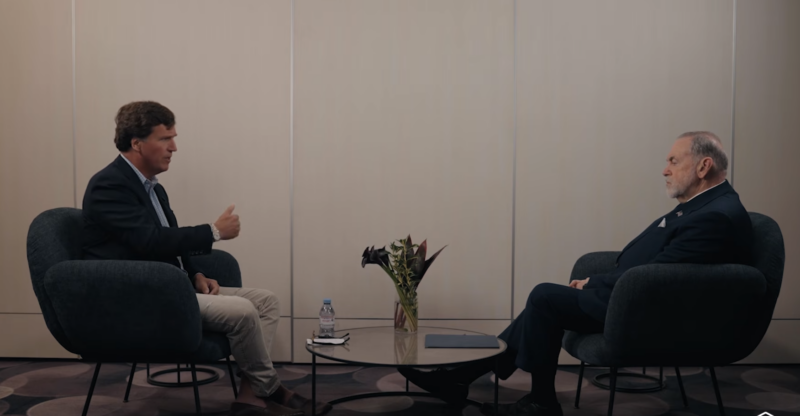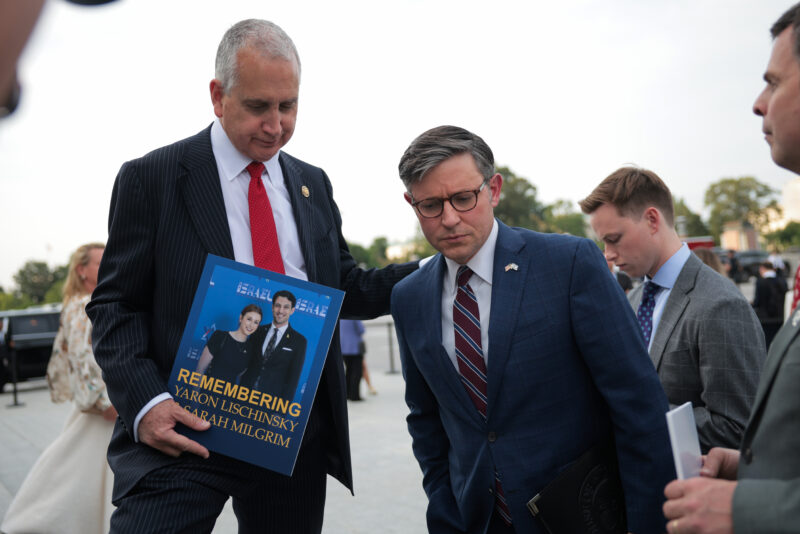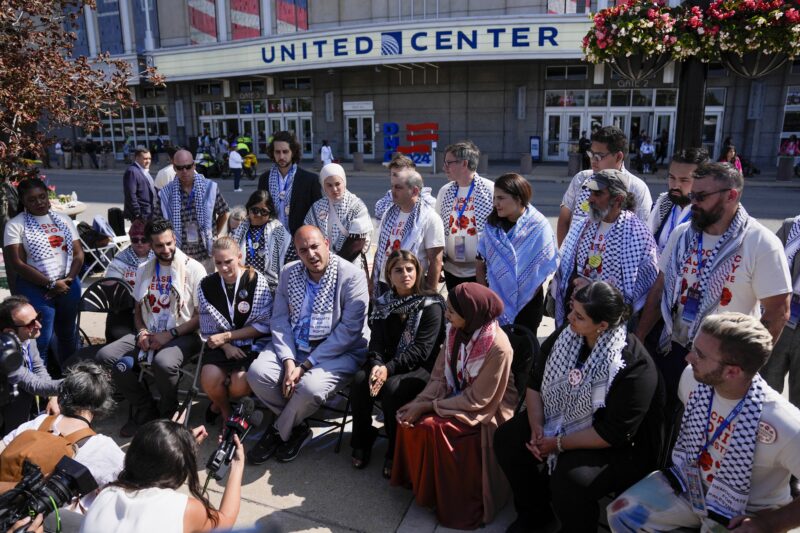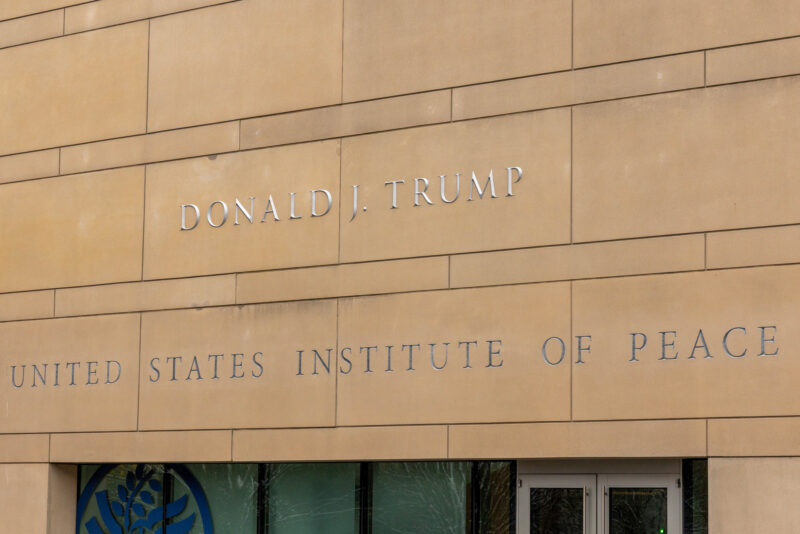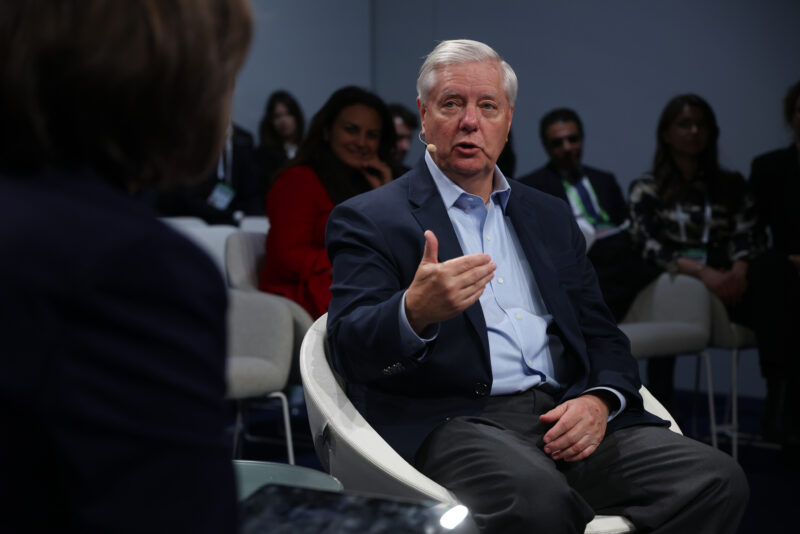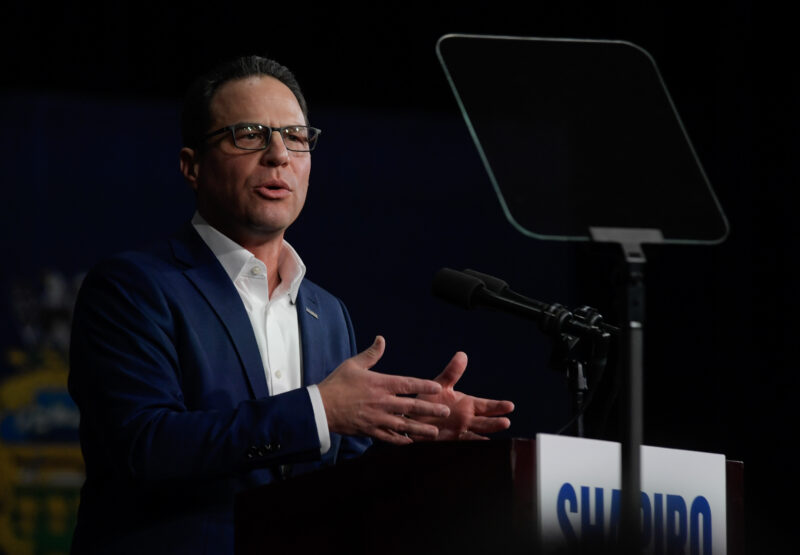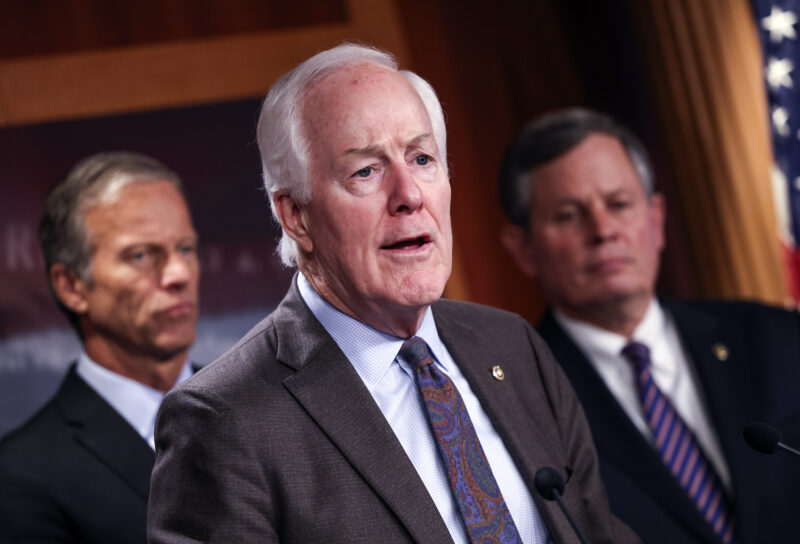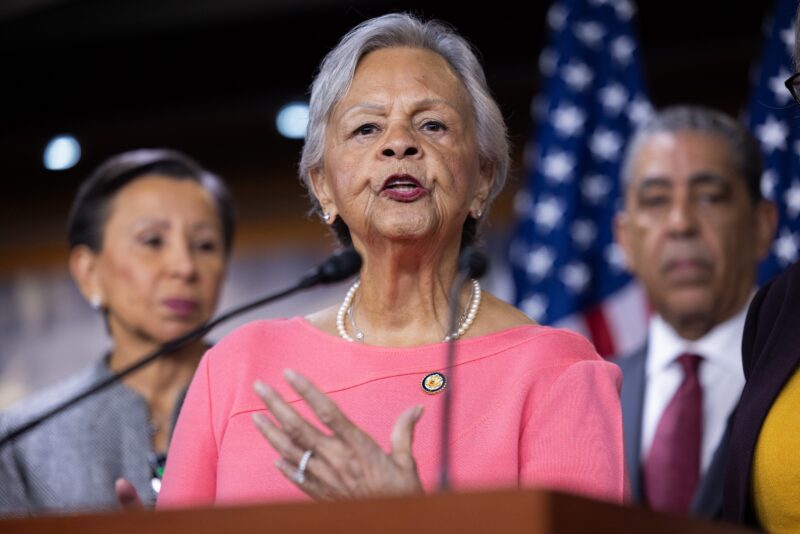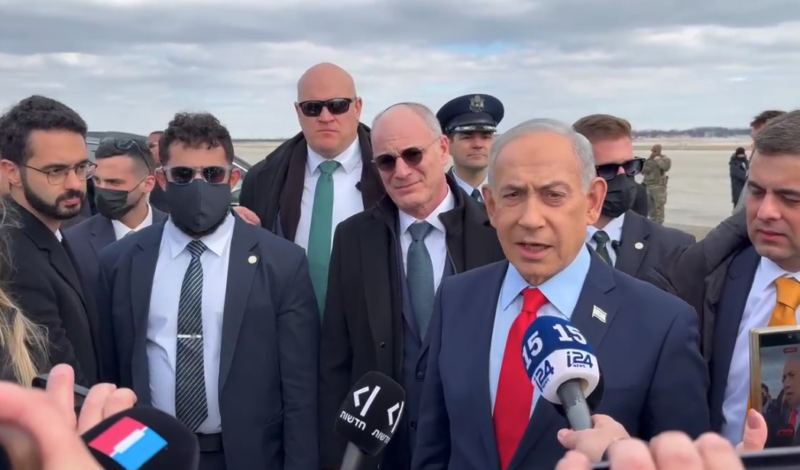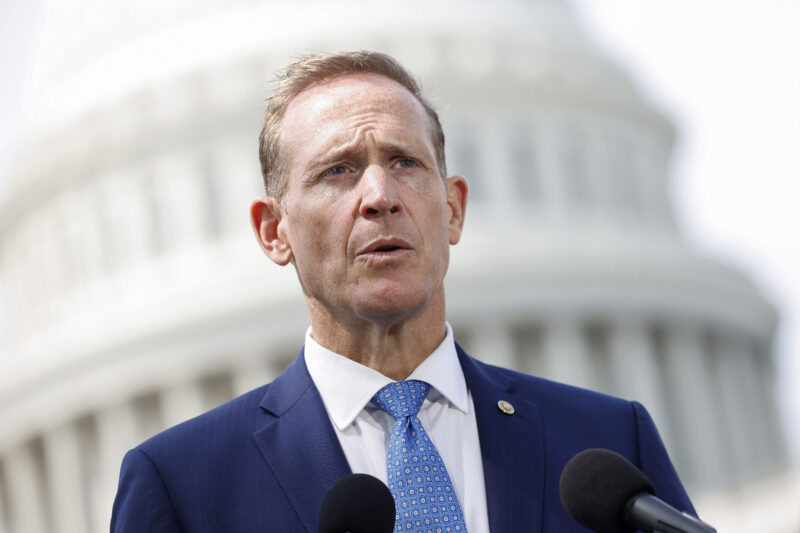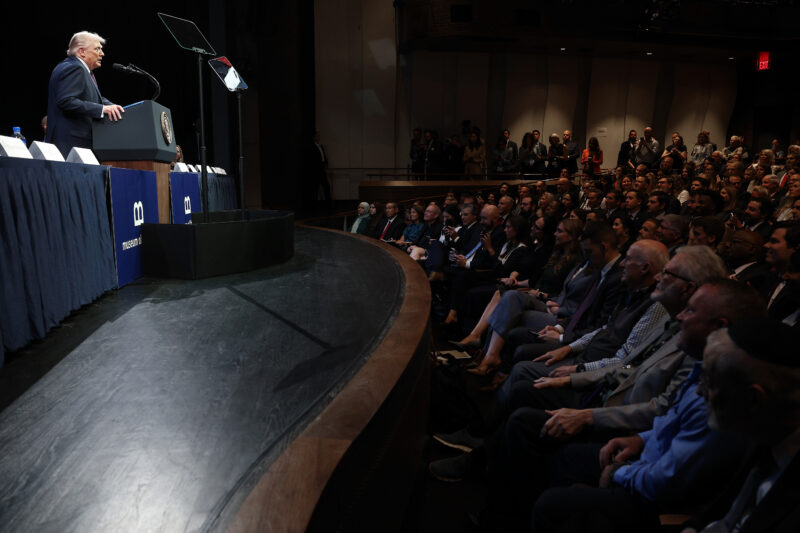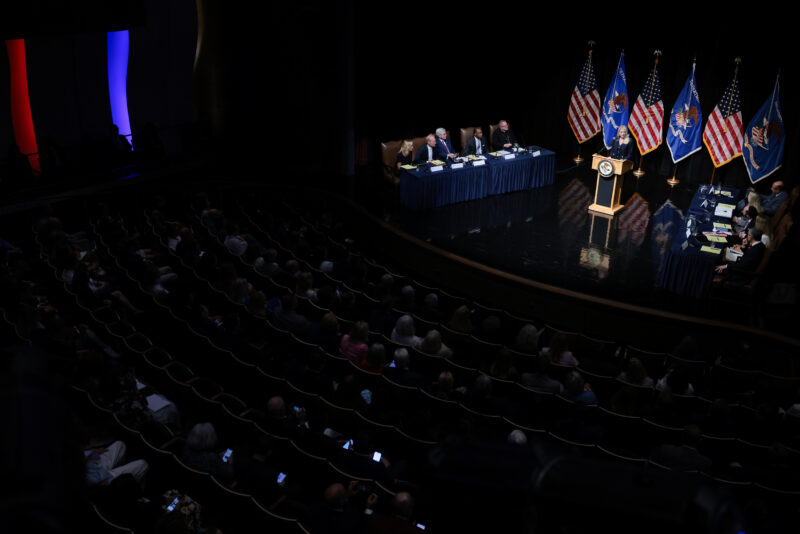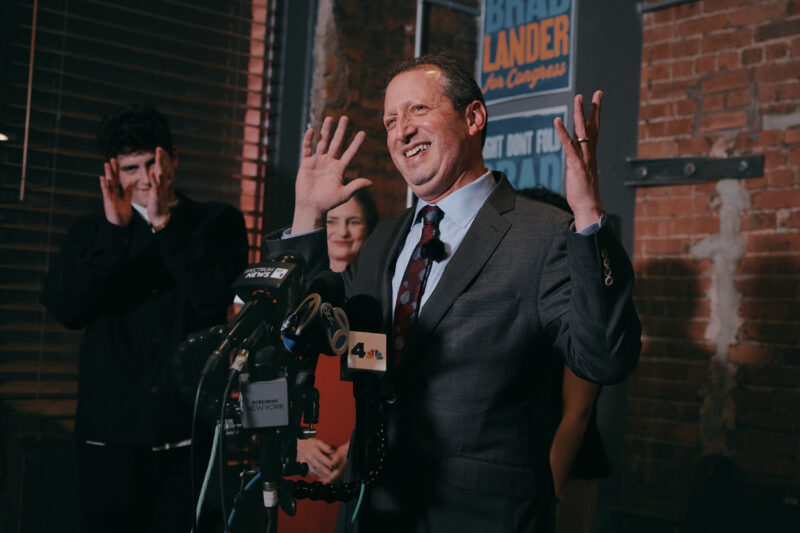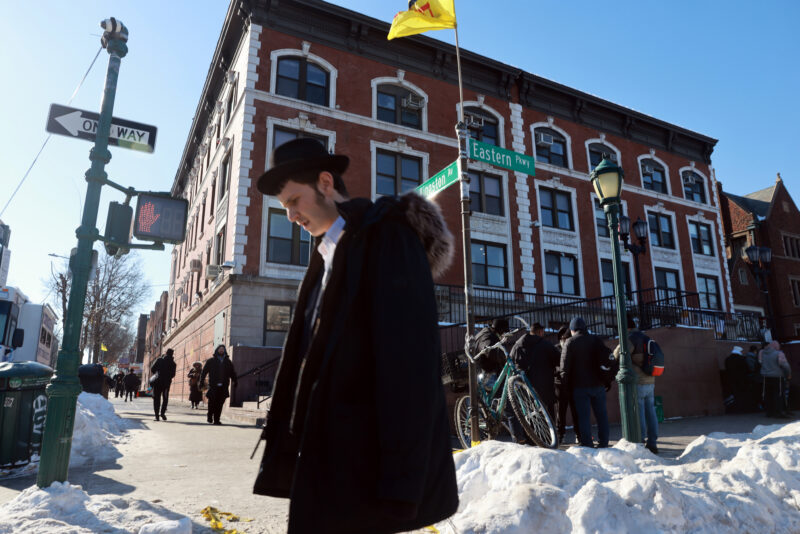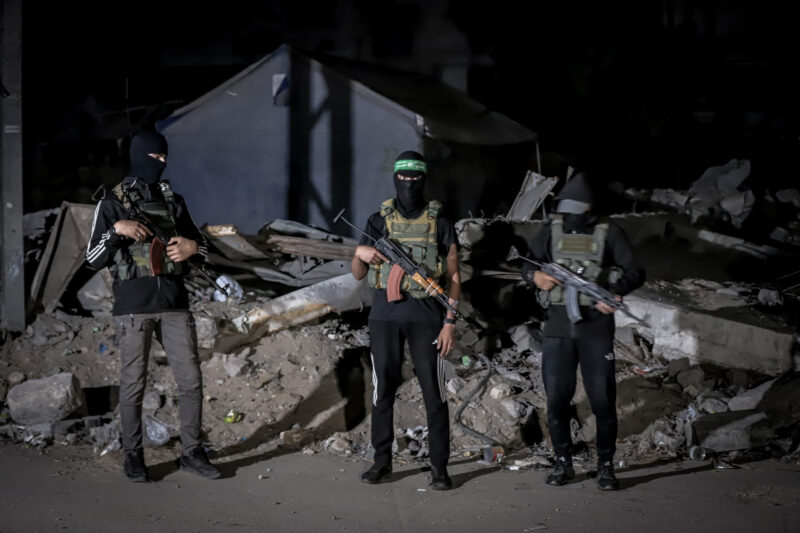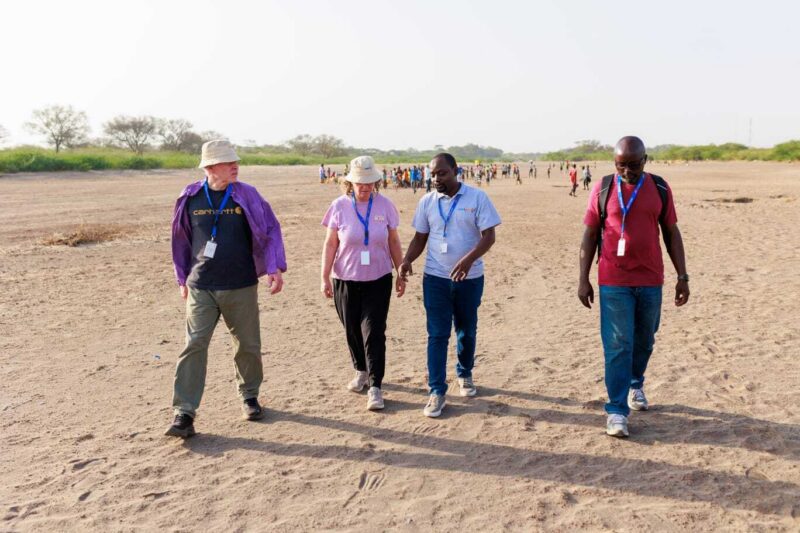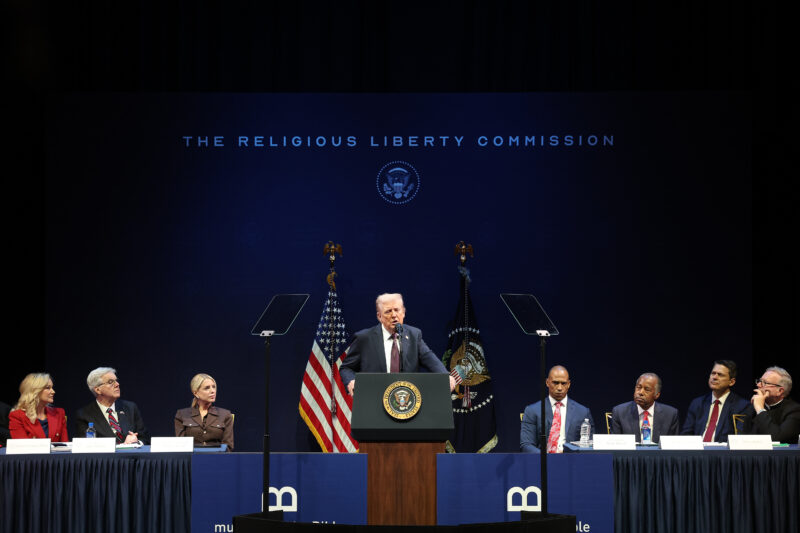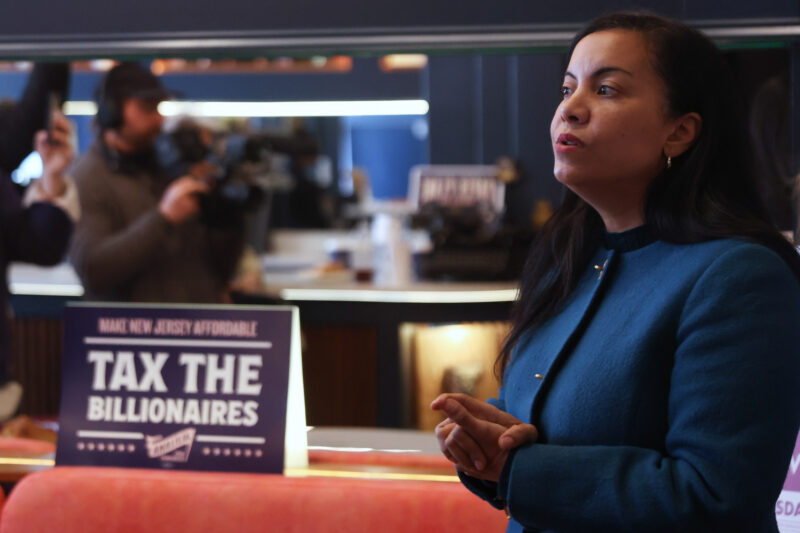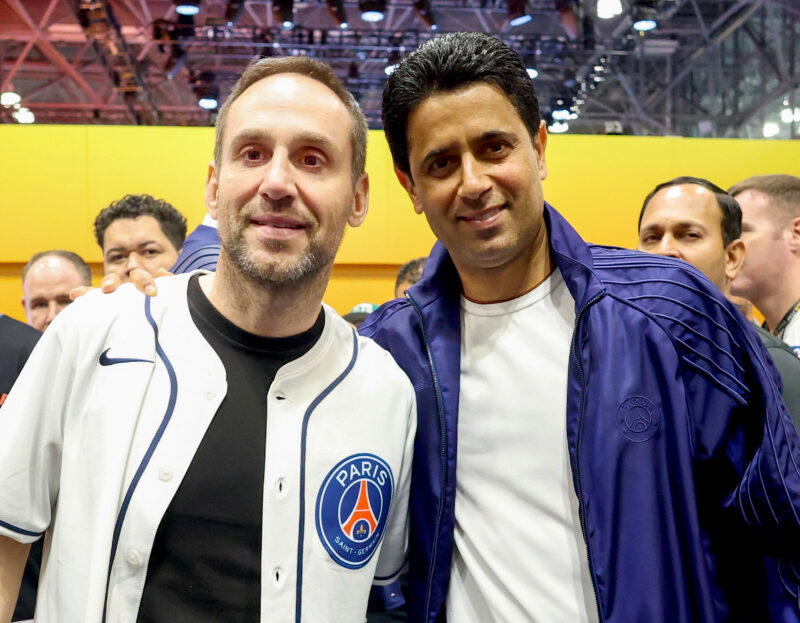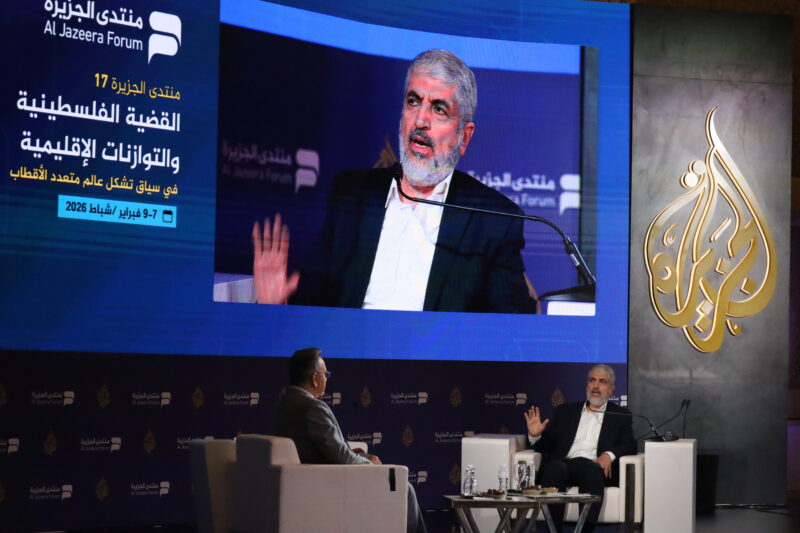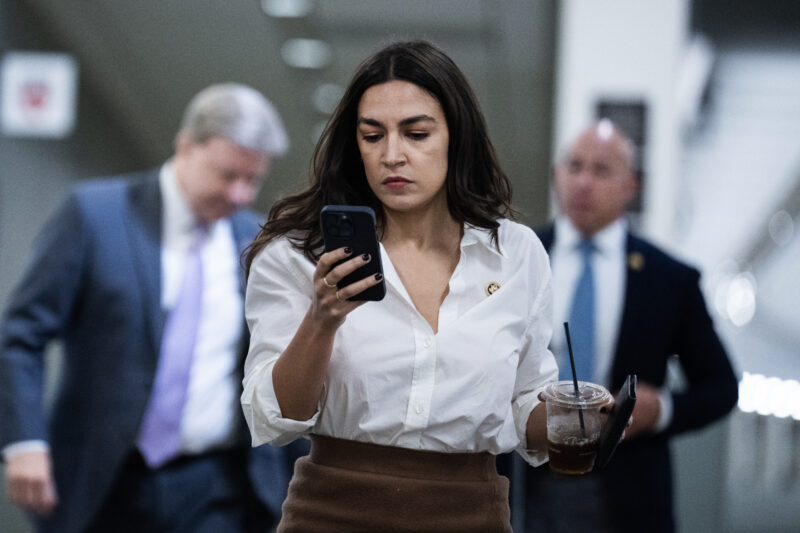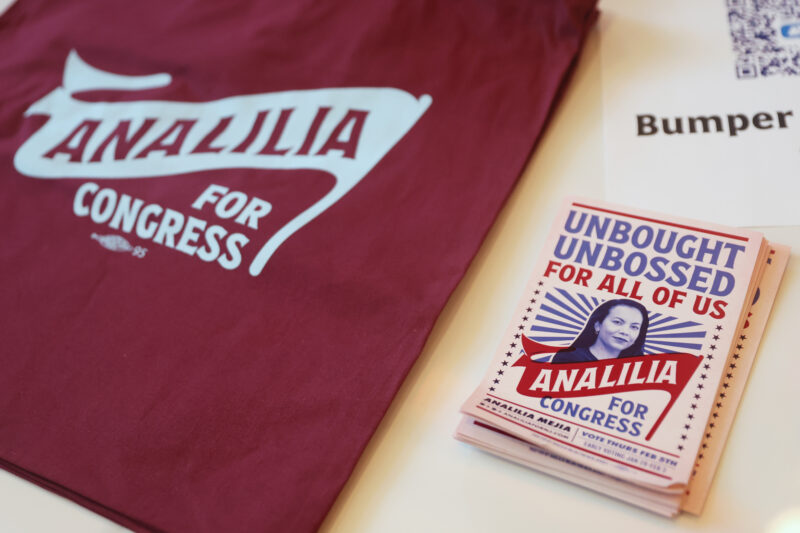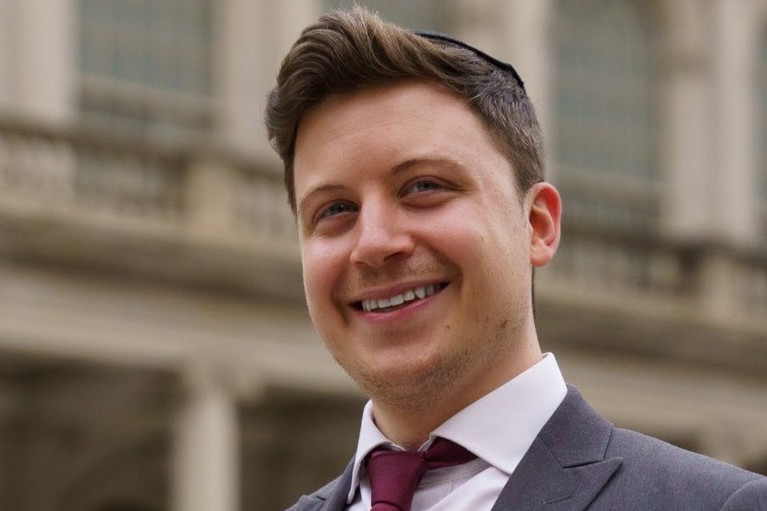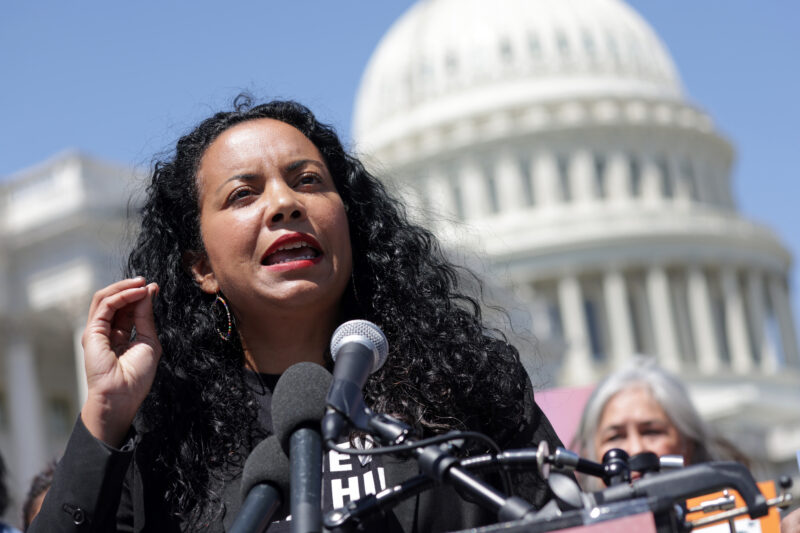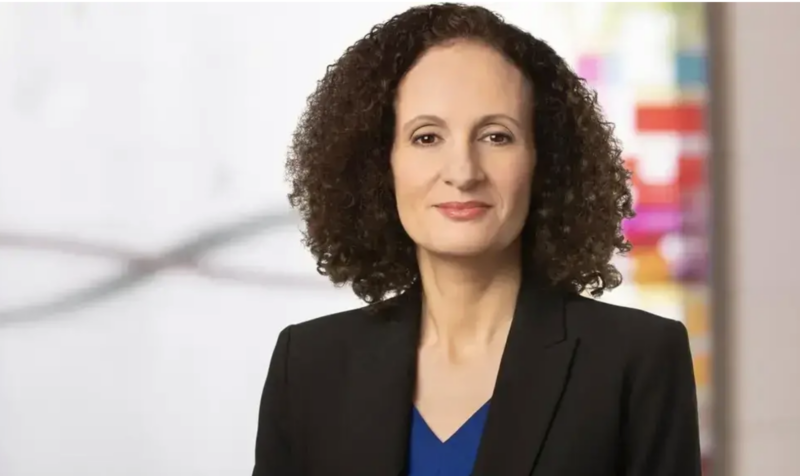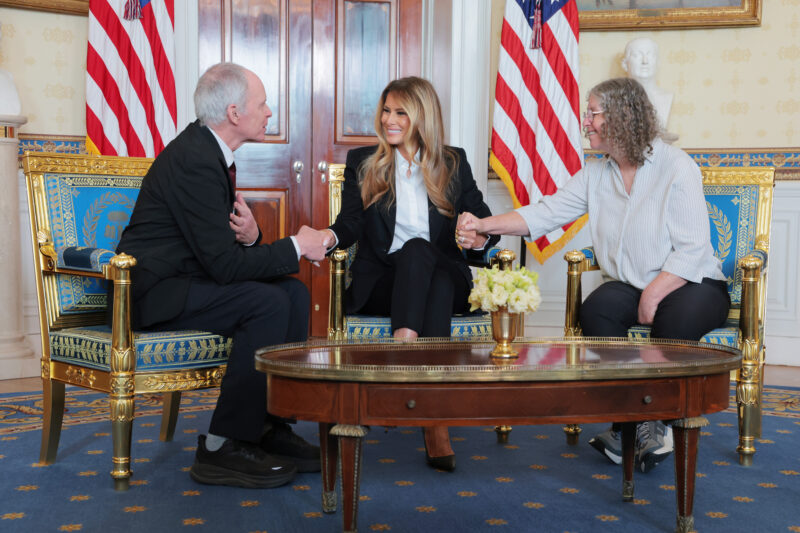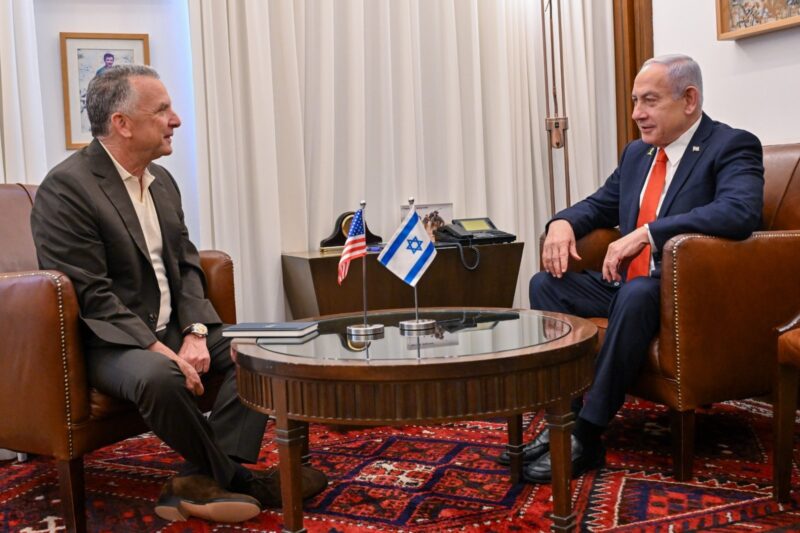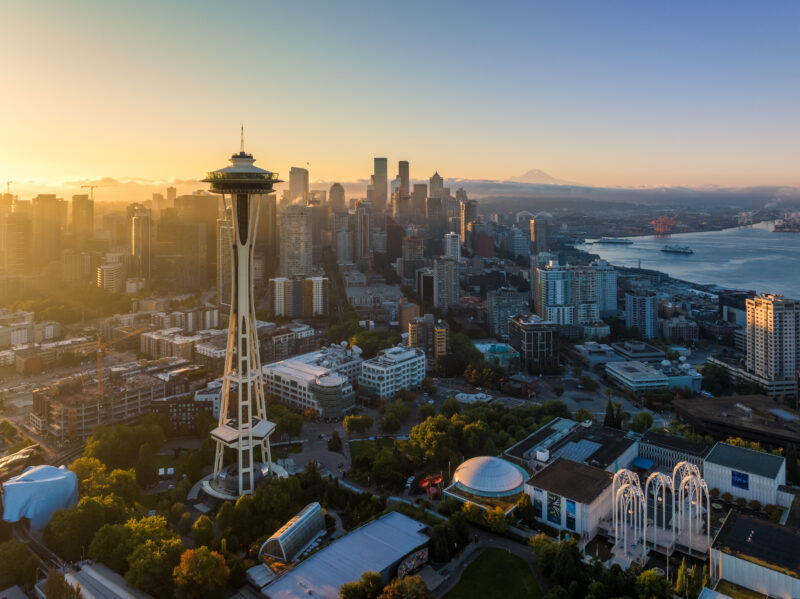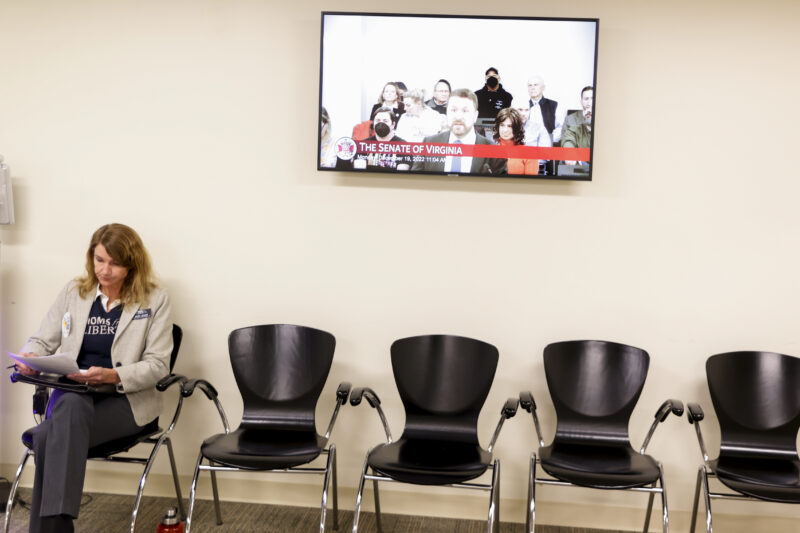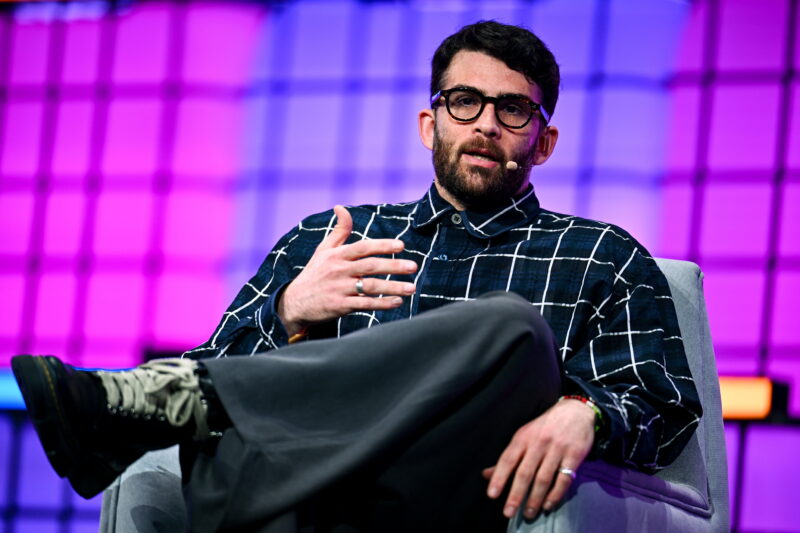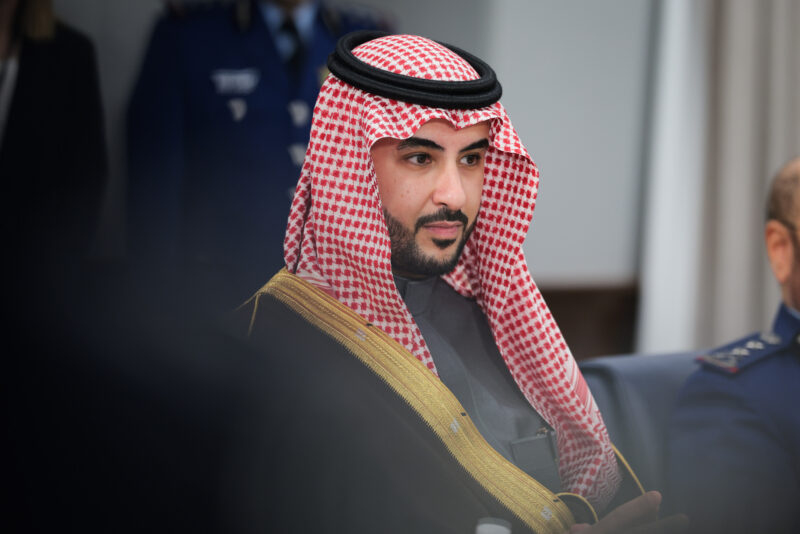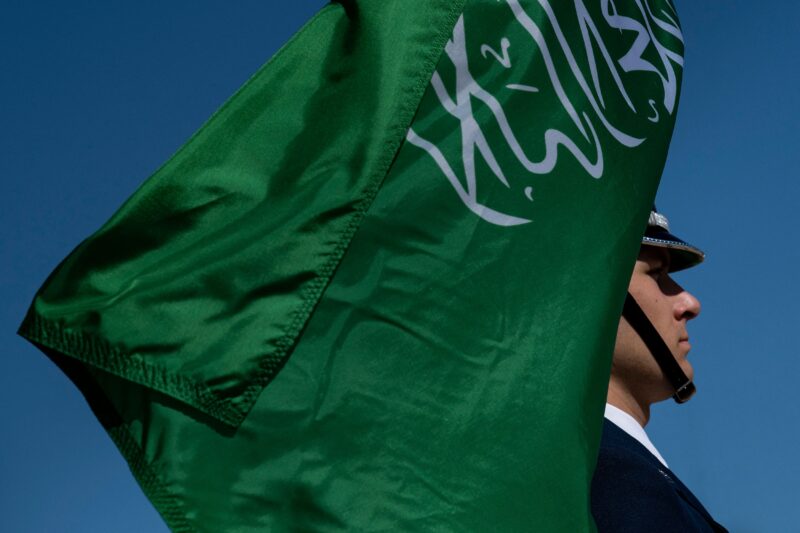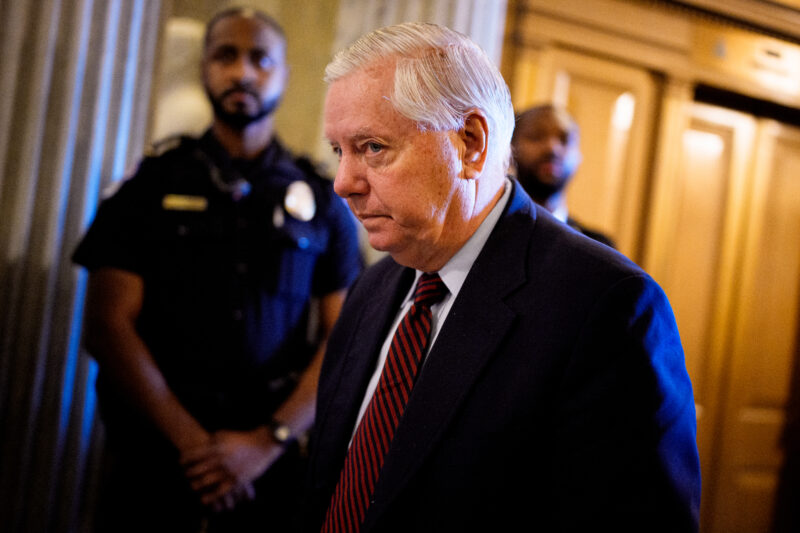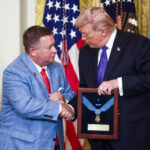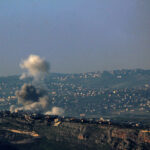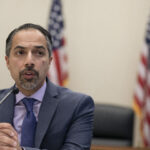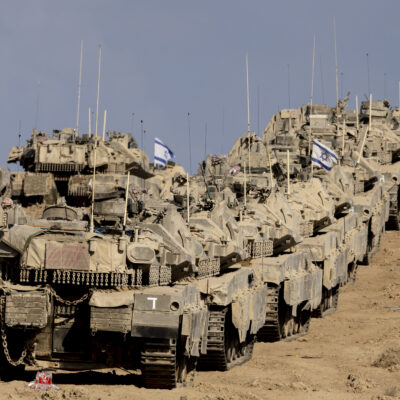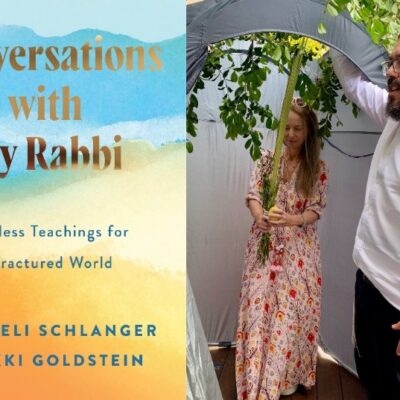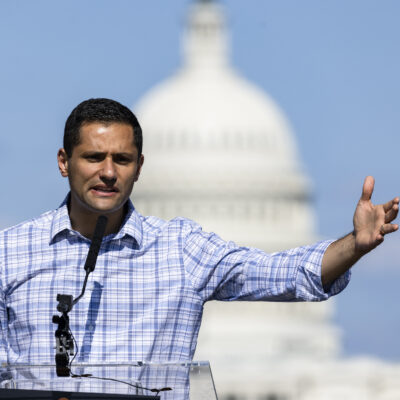Syrian American rabbi blesses Syrian president in Washington
Rabbi Yosef Hamra is the brother of the last chief rabbi of Syria
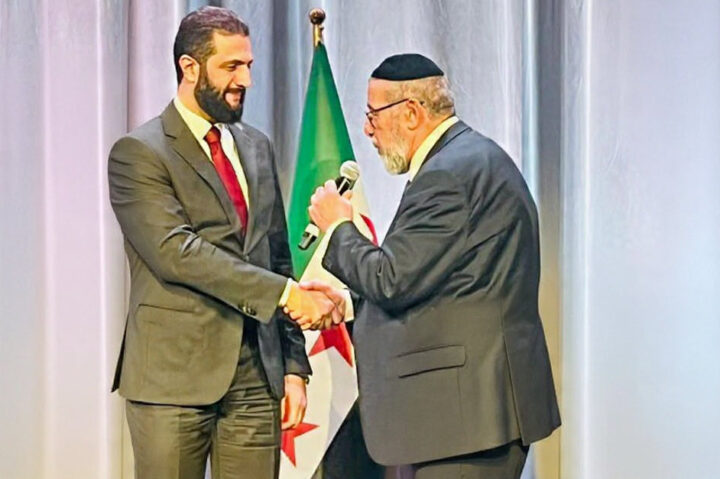
X/Jewish Heritage in Syria Foundation
Rabbi Yosef Hamra, the brother of the last chief rabbi of Syria, shakes hands with Syrian President Ahmad al-Sharaa during a meeting between al-Sharaa and a variety of Syrian diaspora activists on Sunday, Nov. 9th, 2025.
Rabbi Yosef Hamra, the brother of the last chief rabbi of Syria, who now lives in Brooklyn, was invited to offer a blessing to Syrian President Ahmad al-Sharaa during a meeting between al-Sharaa and a variety of Syrian diaspora activists in Washington on Sunday.
The moment produced a striking visual — a handshake between a kippah-wearing rabbi and the new president of Syria, a former Islamist terrorist affiliated with Al-Qaida and ISIS.
“Syrian Jews coming up and sitting down with the president — this is really history,” Henry Hamra, who leads the Jewish Heritage in Syria Foundation with his father, told Jewish Insider. “A lot of people from over here, from our community, were very, very emotional about it. It’s a beautiful thing, and my father was so touched and it was a great moment.”
Hamra said that al-Sharaa had thanked his father for the blessing and said that he would “love to see you again in Syria. And I think it’s happening very soon.”
He said that al-Sharaa had also, during the meeting, expressed a commitment to religious inclusion and pluralism.
“The Jewish community in Syria is exactly the same thing as every community,” Hamra said. “That’s what the president said — there’s no difference between the Syrian Jewish and the Syrian Christian and the Syrian Muslim. We’re all in this together … that’s what he was emphasizing also. And he spoke about all the religions — that everything is the same, the Kurds, the Alawites, everybody is the same.”
Forces aligned with al-Sharaa’s government have carried out massacres targeting the Alawite, Druze and other minority communities.
“We should get ourselves together and try to rebuild again [in] Syria,” Hamra said.
He said the members of Jewish Heritage in Syria also had the opportunity to discuss with both Syrian leaders and U.S. Syria envoy Tom Barrack the work they are doing to support sanctions relief and restore Jewish antiquities and religious sites in Syria. The Jewish group was invited to the meeting by the Syrian Foreign Ministry.
Hamra said that he had invited Barrack to tour Jewish sites in Syria, and Barrack expressed an interest, sharing his personal phone number with Hamra.
“I think the government [is] very, very open for us to start the process of building up, and that’s a great thing,” Hamra said.
Mouaz Moustafa, a Syrian-American activist who leads the Syrian Emergency Task Force, which has been working with JHS in advocating for the repeal of sanctions on Syria under the Caesar Act, said it was “inspirational” and moving to see the meeting between al-Sharaa and Rabbi Hamra.
Henry Hamra, who fled Syria in 1992 at age 15, also recently ran for the Syrian parliament on a platform focused on advocating for sanctions relief, though he was not successful.
Hamra reiterated to JI his desire to see the repeal of the Caesar Act sanctions.
“My goal is to help the Syrian people who suffered a lot, and I think they should have another chance to live in freedom again,” he said. Moustafa, Hamra and Hamra’s father have argued that any restoration work on Syria’s ancient synagogues will be impossible until all sanctions are lifted.
Opponents of the sanctions relief effort say that keeping the sanctions in place is necessary to maintain U.S. leverage and ensure accountability on American priorities like protecting minority groups from further attacks.
Please log in if you already have a subscription, or subscribe to access the latest updates.




